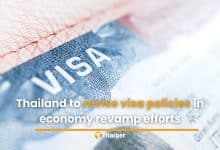Thai tourism industry anticipates growth under Pheu Thai government

The Thai tourism industry is buzzing with optimism as the Pheu Thai Party is potentially gearing up to form the anticipated government. With Pheu Thai’s known successful stint in the realm of governance and its proven track record in enhancing the economy, the tourism sector is eagerly waiting for efficient tourism policies to be rolled out to mitigate existing challenges.
The Association of Thai Travel Agents (Atta) president Sisdivachr Cheewarattanaporn expressed confidence in Pheu Thai forming a coalition government citing their extensive experience in running the country and their successful endeavours to uplift the economy. He mentioned how economic growth could be stimulated further under such a government in contrast to previous decades under military control to boost Thai tourism.
Sisdivachr firmly believes that such a government would put economic policies at the forefront, including recognising tourism as a significant growth engine. He remarked on the successful projects of Pheu Thai’s past administration, recommending their reimplementation. For example, marketing initiatives for the Chinese film Lost in Thailand presented notable results, as subsequent buzz propelled Thai tourism among mainland travellers.
Despite the positivity, Sisdivachr stressed that resolving ongoing issues such as slow visa applications and tourist safety should top the list of government priorities, reported Bangkok Post.
Adith Chairattananon, honorary secretary-general of Atta, hinted at the possibility of the Bhumjaithai Party returning to lead the Tourism and Sports Ministry. Phiphat Ratchakitprakarn, the party’s deputy leader, previously appointed several senior leaders in state agencies during his term. In this situation, Adith anticipates that existing Thai tourism policies might continue unchanged. He added that he remains favourable to environmental policies which focus on low-carbon, sustainable Thai tourism along with the extension of operational hours for entertainment venues in specific zones.
Yet Adith shared concerns regarding the proposed 300 baht tourism fee, suggesting its implementation be delayed as international tourism demand is yet to achieve full recovery. Additionally, he pointed out that the fee collection method still lacks clarity.
Aligning with this line of thought, Thai Hotels Association’s Vice President Thienprasit Chaiyapatranun voiced that hotel operators are hoping for decisive action from the incoming government, such as setting a year-long timeline to alleviate the high operating cost burden faced by many hotels through the implementation of suitable electricity tariff rates.
Finally, he stated that there is an urge for the government to trigger a new phase of the domestic stimulus campaign focusing more on secondary destinations that are trailing behind the recovery rate of major tourism cities.
Latest Thailand News
Follow The Thaiger on Google News:


























